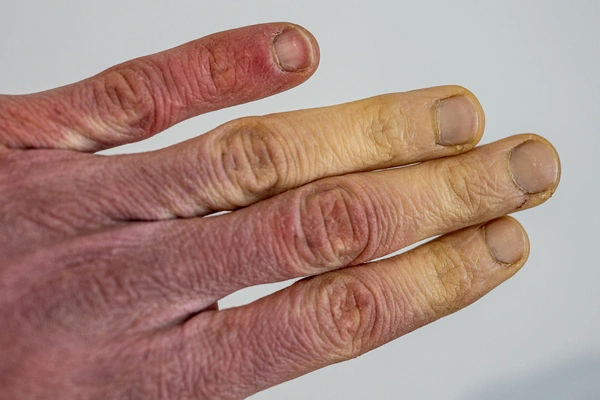- Female
- 50 Years
- 29/01/2025
Can you explain what the ESR test involves? My mom has diabetes, and I've been told she's having issues with her ESR levels. I'm hoping to understand more about what this means for her health.
Answered by 1 Apollo Doctors
The ESR (Erythrocyte Sedimentation Rate) test measures inflammation in the body by assessing how quickly red blood cells settle in a test tube, with high ESR levels indicating chronic inflammation, which can be associated with various conditions, including diabetes, infections, and autoimmune disorders, and as your mother has diabetes, an elevated ESR may indicate underlying inflammation, which can increase the risk of complications
Dr. Anshul Suggests...
Consult a Rheumatologist
Answered 04/07/2025
0
0


Ask Apollo
AI powered Health Chatbot
-
What is the ESR Test?
- The ESR test measures how quickly red blood cells settle at the bottom of a test tube. It indicates inflammation in the body.
-
How is the ESR Test Performed?
- A simple blood draw is performed. High ESR can suggest inflammation, infection, or other medical conditions.
-
ESR and Its Significance in Diabetes
- In diabetes, high ESR may indicate inflammation or infection, which can complicate diabetes management.
-
What Abnormal ESR Levels Mean
- High ESR can be due to infections, chronic diseases, or inflammation. Low ESR is less common and usually less concerning.
-
Next Steps and Medical Advice
- Consult a healthcare provider to interpret ESR results and manage diabetes effectively. Follow their advice on further tests or treatments.
-
Related Medical Specialties and Tests
- Consider consulting an endocrinologist. Additional tests like C-Peptide or HbA1c may be recommended for comprehensive diabetes management.
Recommended next steps
Consult a Endocrinologist or Take a TLC,DLC,ESR Test
Answered 20/08/2025
0
0
More Rheumatology Health Queries
View allI'm trying to understand the difference between the ANA test and the COVID antibody test. If someone has lupus, would they automatically test positive on a COVID antibody test? I'm just a bit confused about how these tests work, especially for those with autoimmune conditions.
No both are different
Answered by 1 Apollo Doctors
I've been dealing with gout and high uric acid for about six months now. I've been taking LOGOUTSR 250mg three times a day after meals. There's been a shortage of this medication, so I'm a bit concerned and wondering if you could suggest an alternative for me. Any advice on what I can do would really help.
kk
Answered by 1 Apollo Doctors
I'm starting on HCQ 200mg every night for my knee joint pain, and I just wanted to know if there are any serious side effects I should be worried about. Can you tell me what to watch out for with this medication?
Visit your Physician for evaluation and appropriate management
Answered by 1 Apollo Doctors
Disclaimer: Answers on Apollo 247 are not intended to replace your doctor advice. Always seek help of a professional doctor in case of an medical emergency or ailment.





